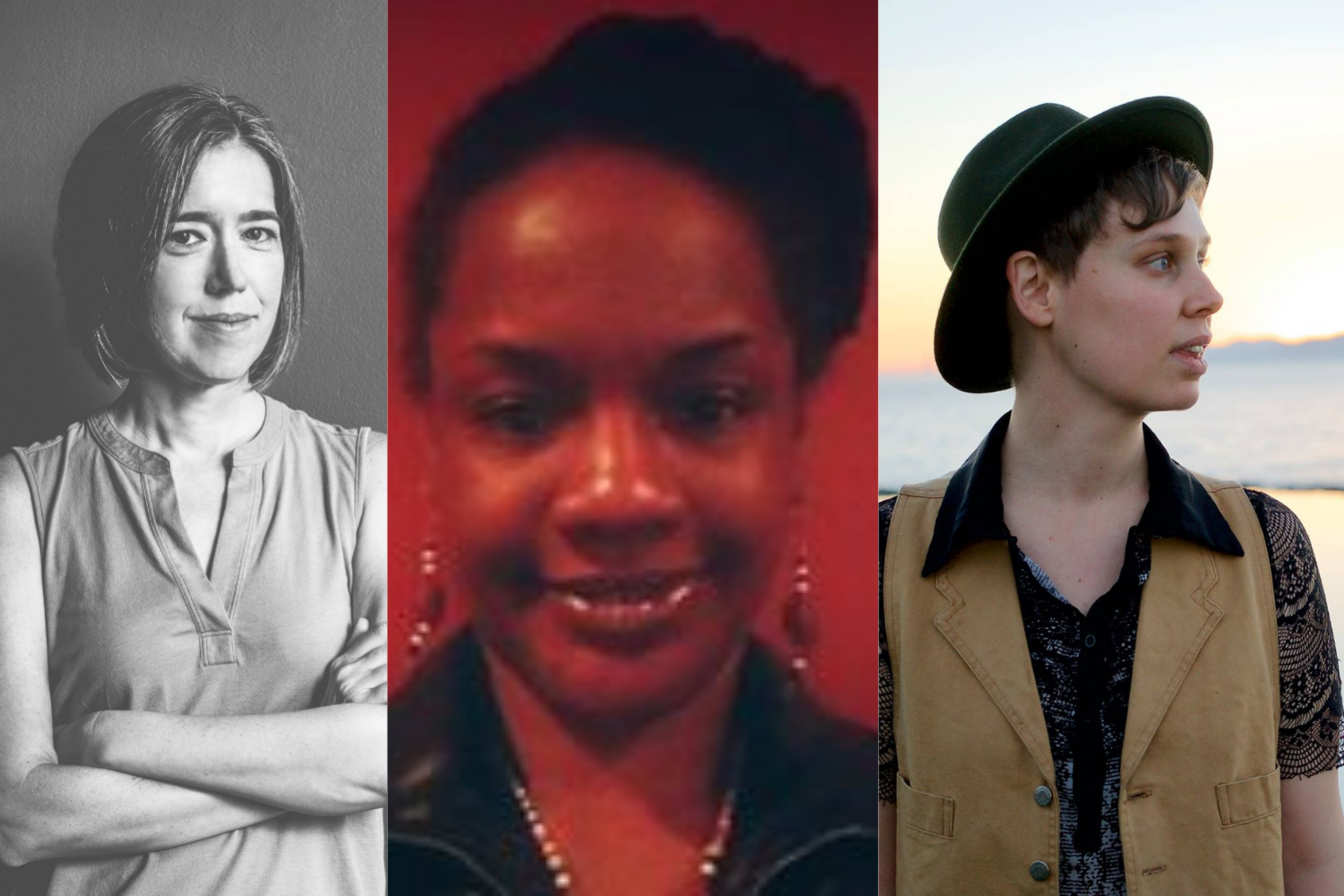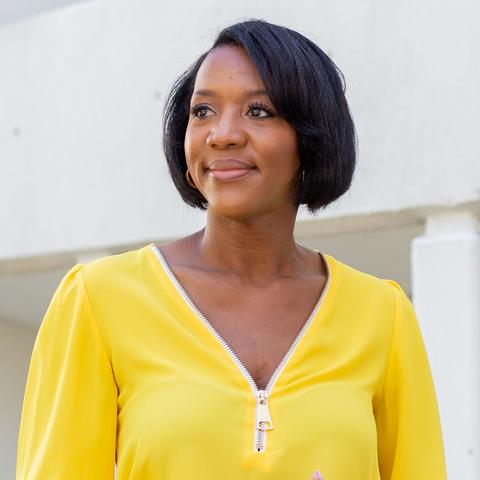Section Branding
Header Content
Can Poetry Say What Politics Can't? Three Poets Speak On Its Power
Primary Content
From a pandemic to an insurrection, we live in unprecedented times. But poetry has been there for us giving comfort and inspiration. Consider Amanda Gorman: Her fiery performance at the inauguration of President Joe Biden brought a turbulent country to reflection. And according to NPR, overall visits to the website poets.org went up 30% in recent months.
Now that the pandemic is easing, we’re talking about lessons learned through the art of poetry. GPB's Leah Fleming spoke recently with three Georgia poets.
Since 2019, Chelsea Rathburn has served as the Poet Laureate of Georgia.
Rachel Economy is the founder and owner of Index for the Next World.
Yolanda Latimore, also known as "Y-O," is a poet and the leader/founder of Poetic Peace Art.
Leah Fleming: So I want to start off talking about poetry and this climate that we're in right now. How in the world do you do poetry in times like these? I'll start with you, Chelsea.
Chelsea Rathburn: That is a tough one. Because, I mean, personally, I have really struggled to be in touch with my — my own creative side. I have — I've not been writing many poems during this pandemic, you know, being locked down. I think, you know, so many of us, so many poets, we thrive on our connections with — with audiences at live readings. And these are things that have been taken away from us in the last year.
Rachel Economy: The question, "How do you write poetry in this moment?" And I have two feelings. And one is, I haven't been writing that much. And the other is, "How do you not write poetry?" For me as someone who deals with intermittent disabilities, having to write from home, perform virtually, connect in those ways is not new. And something that's been really powerful about the pandemic is that those types of accessibility have become really mainstream and people are showing up to Zoom events. And that feels like something I want to hold on to.
Yolanda Latimore: Things like this, make me and motivate me to want to write. Because it's like you have all of these feelings inside about things like the insurrection, like who does that and not get arrested, you know. And what if that was Black people?
Fleming: You know, the Jan. 6th insurrection happened and there are various viewpoints about what happened. And then in the middle of all of this chaos, along comes Amanda Gorman. And she delivers her poem at the inauguration. And it seems like the world just stands still and listens.
Yolanda Latimore: When I was looking at her, I squeaked, "She looks like me!" I was stuck for a moment, like that's my sister from another mother. Amanda Gorman, she brought vibrancy as far as the world of poetry is concerned. And at a time like this, I do write more. There are a lot of thoughts going on.
Rachel Economy: I was just picturing where I was when I heard Amanda Gorman speak. I was walking down the sidewalk in traffic, loud traffic, and I stopped. You know, I came to a standstill and I was sort of crying on the sidewalk like you do. And um — the pandemic's just blown it all open. That's fine. And I remember thinking, "Oh my gosh, is this really happening?" I look up to her so much, partially because the art of what she's able to do of making this incredibly complex poem also accessible, legible to so many people — including people like you were saying, Chelsea, who maybe don't think about poetry that much — without losing the incredible strength and power of that poem.
Chelsea Rathburn: Yeah, I always like to say that a poem is maybe about an experience. You know, a poet may be recounting something that happened to them, but the poem becomes more — it's more than a story about an experience. The poem is itself an experience. And so we're trying to give this, you know, give this experience to a reader so that they physically inhabit it and understand us a little bit more.
Chelsea Rathburn: (Snippet of poem by Chelsea Rathburn) What did we make of our mother's revelations, which made us the monstrous creatures changelings left by trolls, that they could not or would not save us, that we had to learn to walk the woods alone?
Yolanda Latimore: It's expression, and I do look at it, you know, in song, in our regular — in our conversations, raps, you know, I look at it as expression.
Yolanda Latimore: (Snippet of poem by Yolanda Latimore) Big lips, broad noses, wide hips, curved, but of course, here, skin of color. We are beautiful. I love my skin. I love my race. But oftentimes I get caught up in the European pace, like straightening my hair, defining my nose, wearing polos on and on it goes. And actually, there's nothing wrong with those rags, especially if you're one who has money bags. But I take heat in my heritage as I should. And sometimes I dress with blackness, most definitely with soul.
Rachel Economy: Poetry, really to me, is — it's a survival tactic. It's a way to transform the present, the past and the future on the page, but it's also a way to just be with what is happening. And especially, you know, in the wake of this ongoing extreme violence from the police that we're seeing towards Black people, towards people of color. Also, I think there's a moment for me as a white person to say "I'm going to write poems that I don't share because it's actually a moment to listen." And so the process of writing itself can be a way of learning for me while also stepping back in a public space.
Rachel Economy: (Snippet of poem by Rachel Economy) And we reached out as we ran and we gripped each other's hand in our hands. It was the queerest thing like a bird in love with a sturgeon, a family of defector's arms, empty of objects and pockets emptied into soil above the waterline, saving no wealth or infrastructure, saving the wrong things. A rekindling. A re-kinning. A reckoning.
Chelsea Rathburn: People, you know, say, "Well, what do you think about it? Is poetry dead or is poetry more popular now than ever?" And I always think, I don't know if poetry actually needs to be popular. Because I always think about poetry as being this very personal art. It's an intimate art. You know, it's really about one — one person expressing their experience to an imagined listener. And, you know, and I think that when we hear a poem performed or when we read a poem on the page, we always just have a little bit better sense of what it means to be another person.
Those were the voices and the poetry of Chelsea Rathburn & Yolanda "Y-O" Latimore and Rachel Economy.



